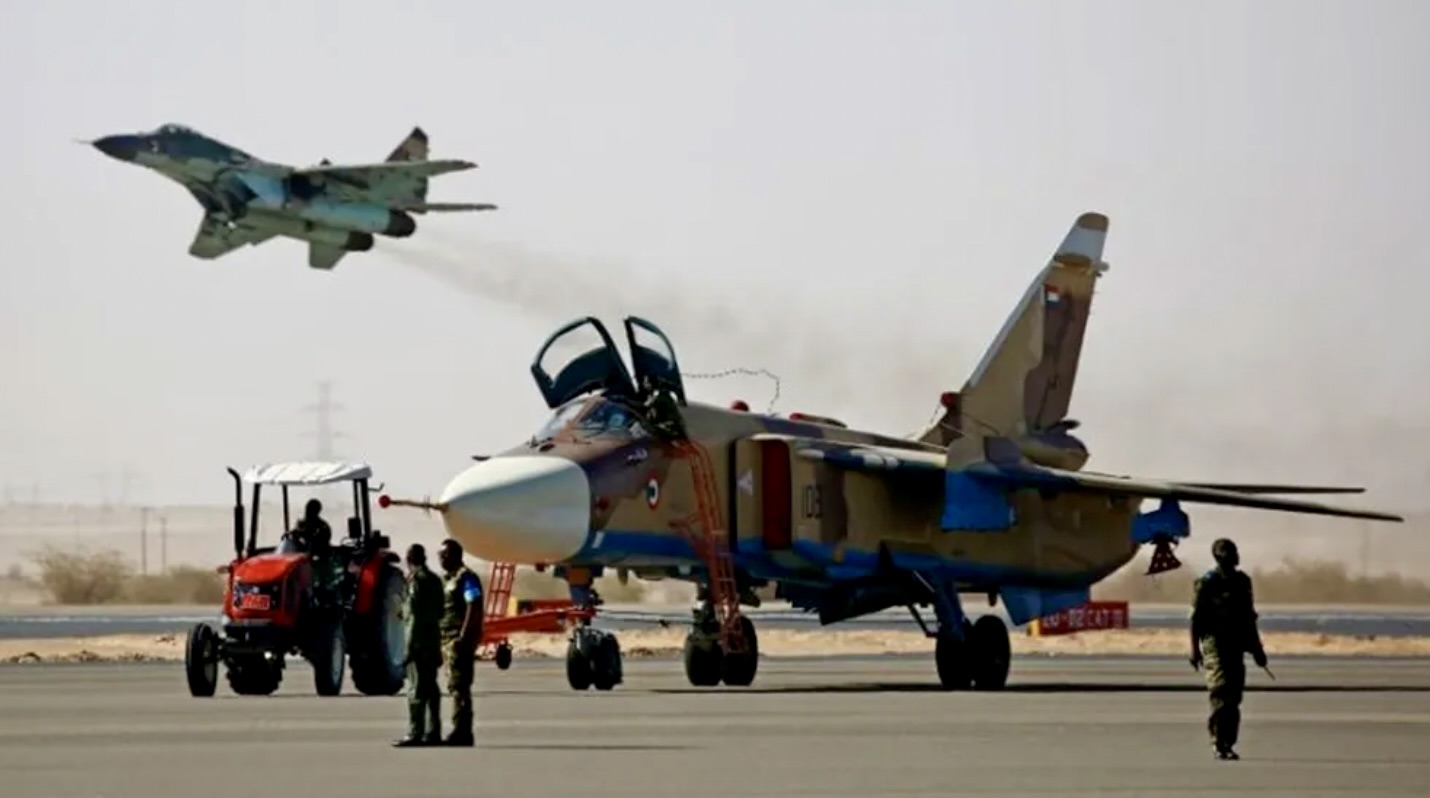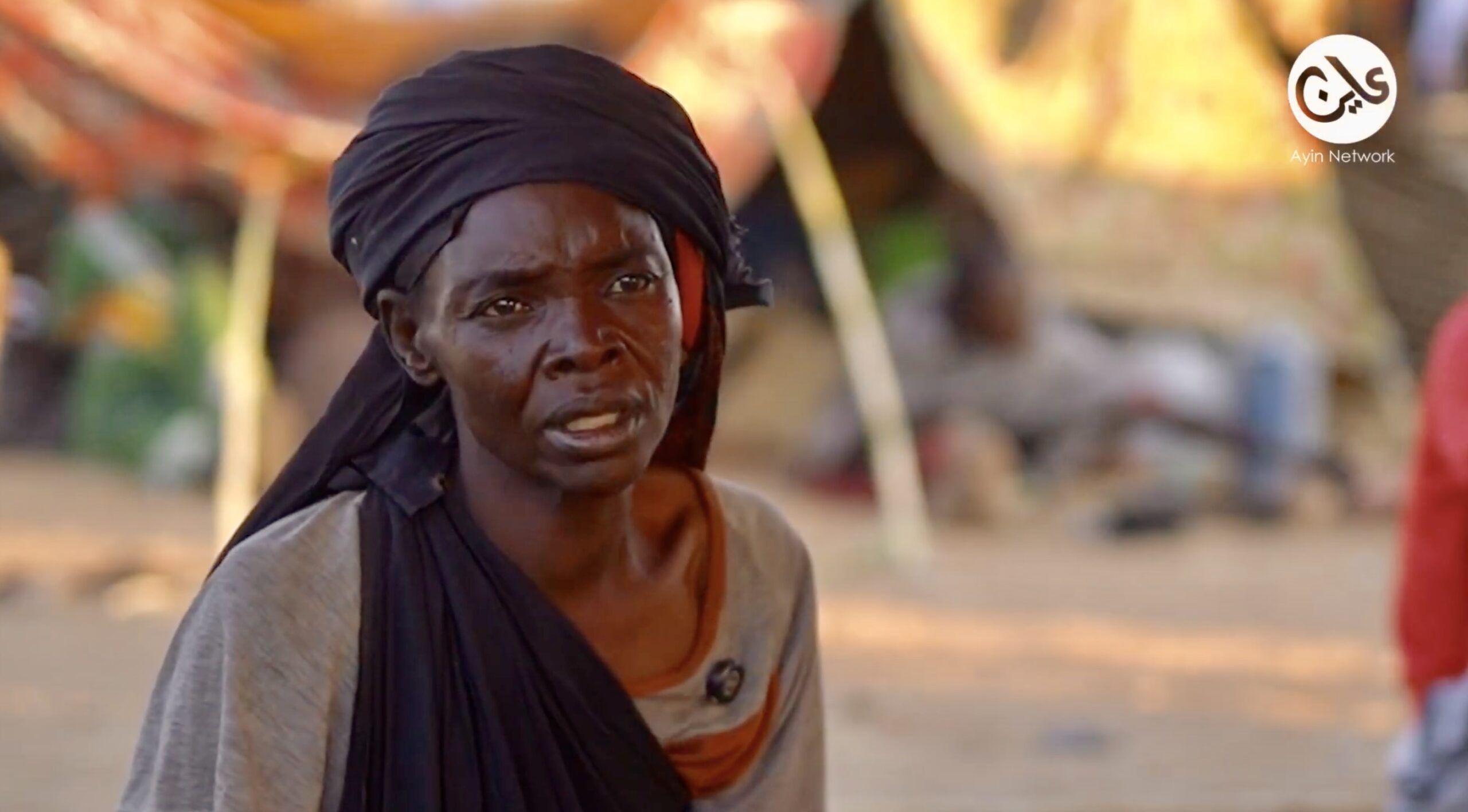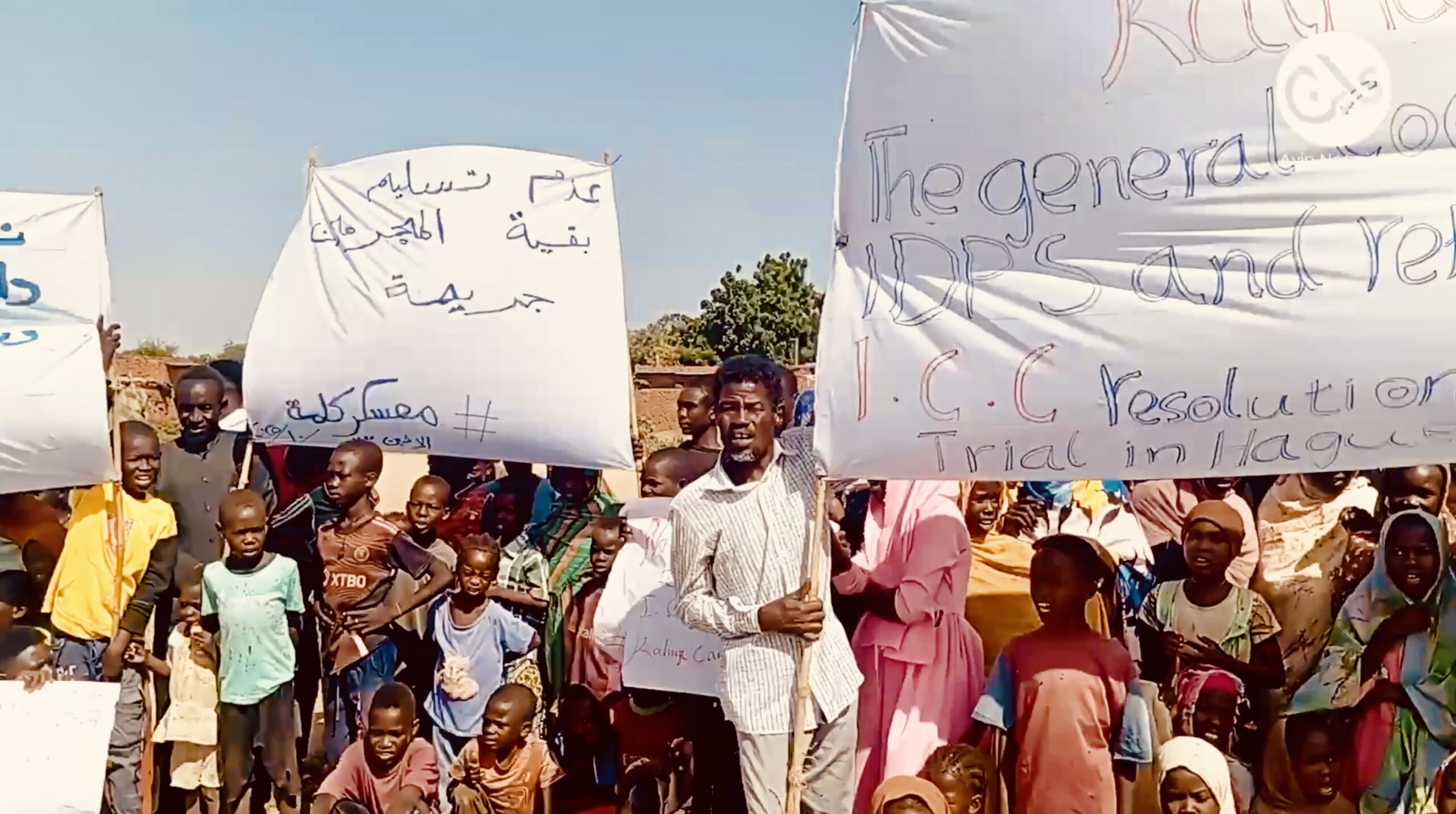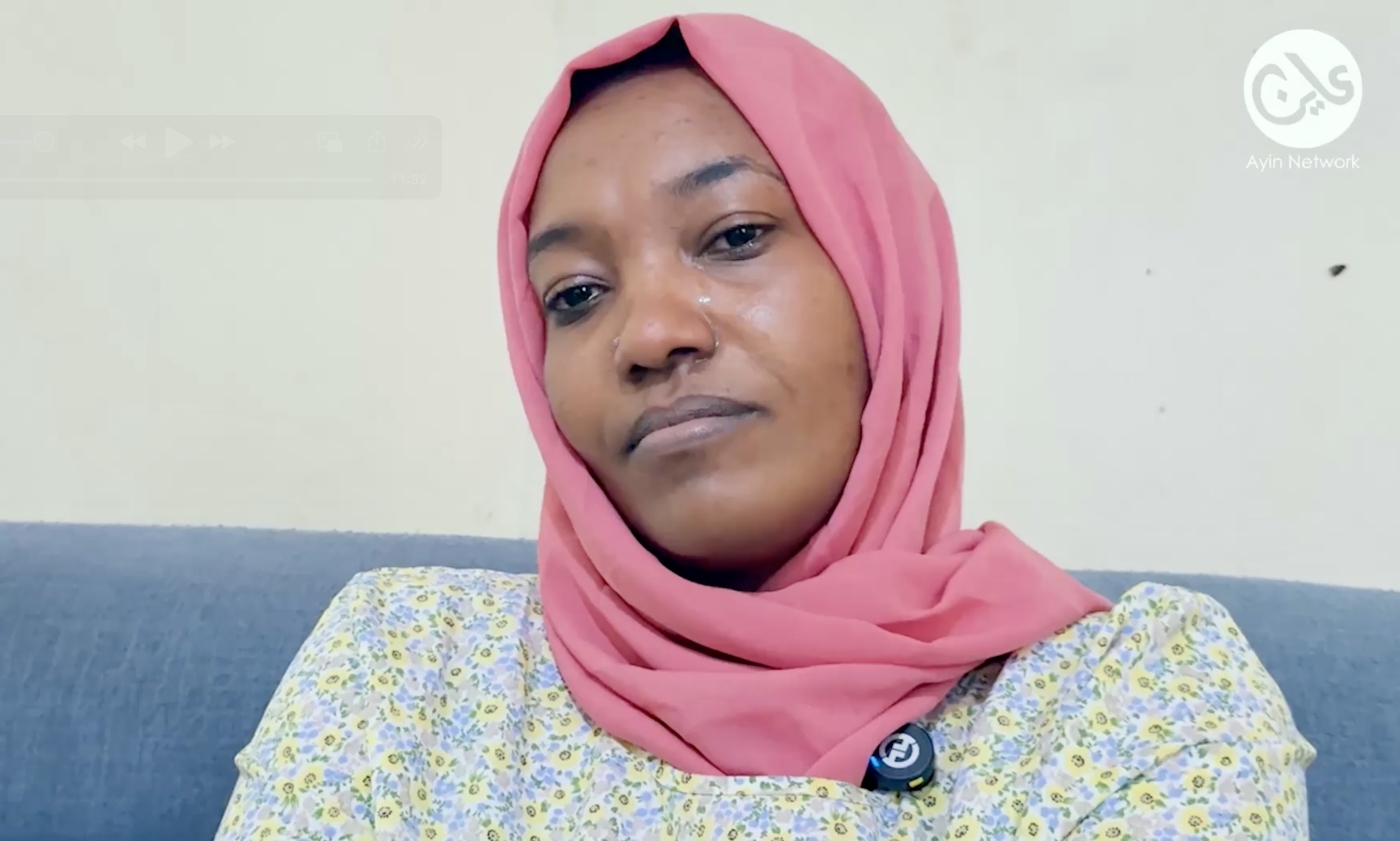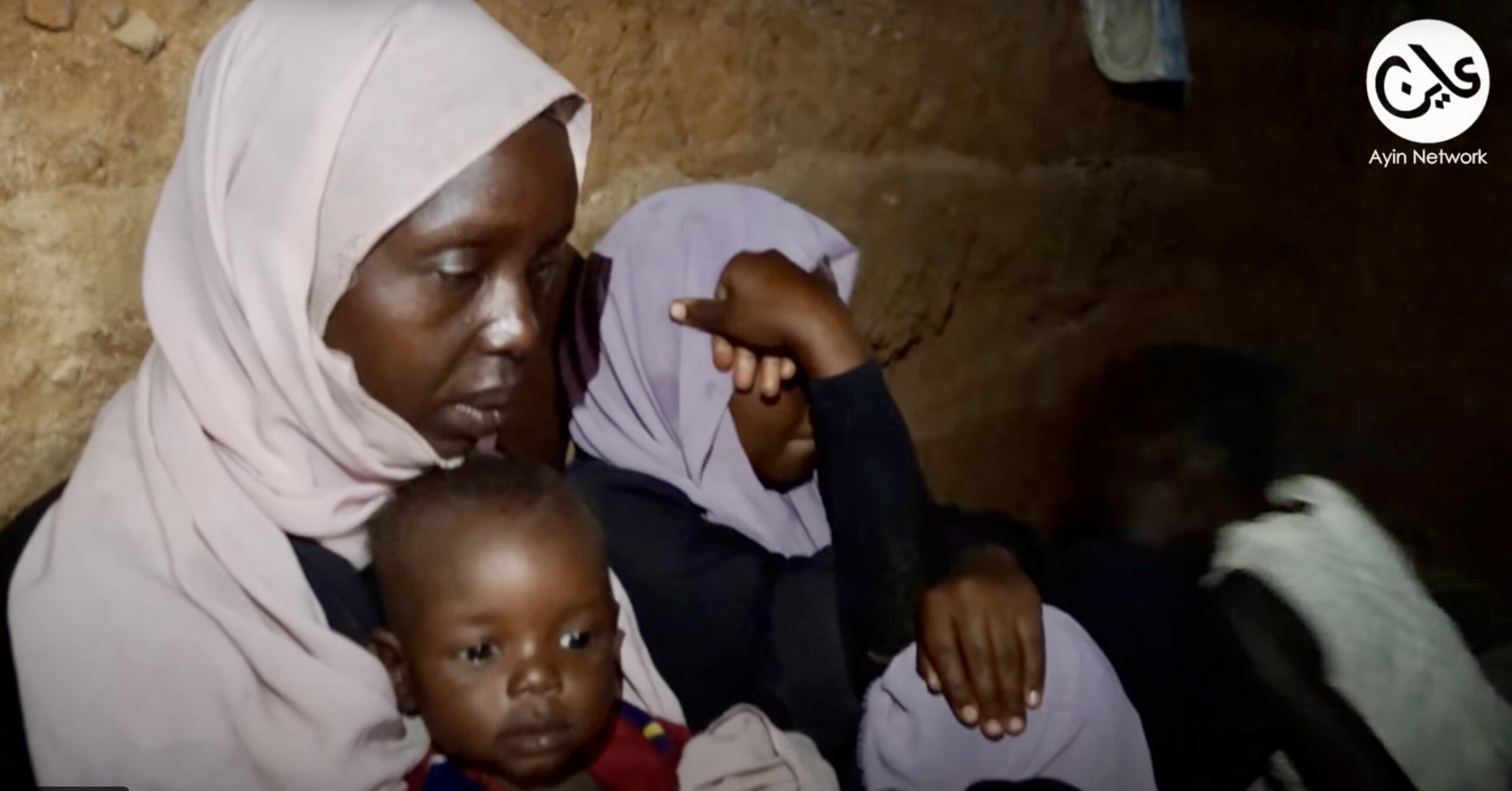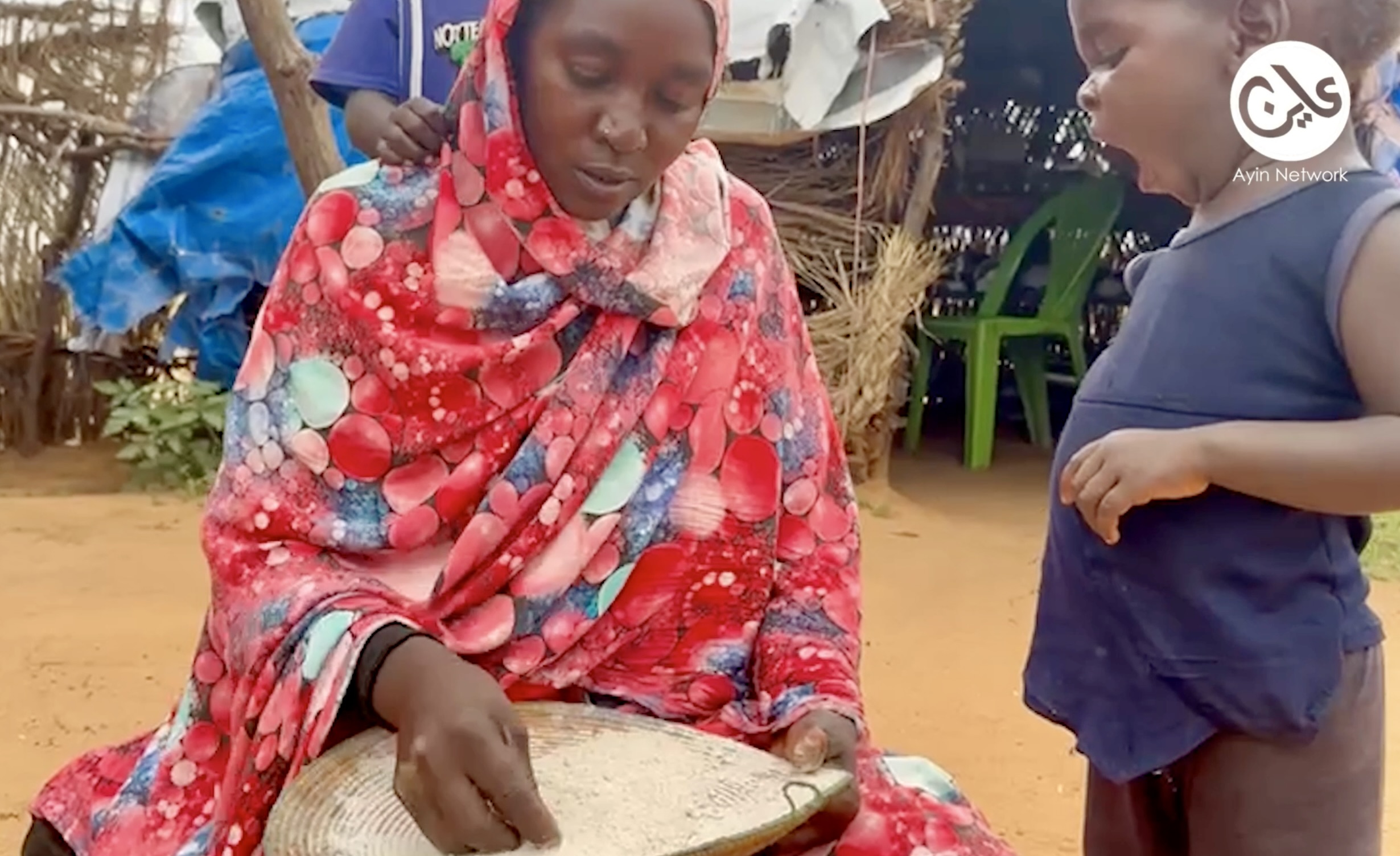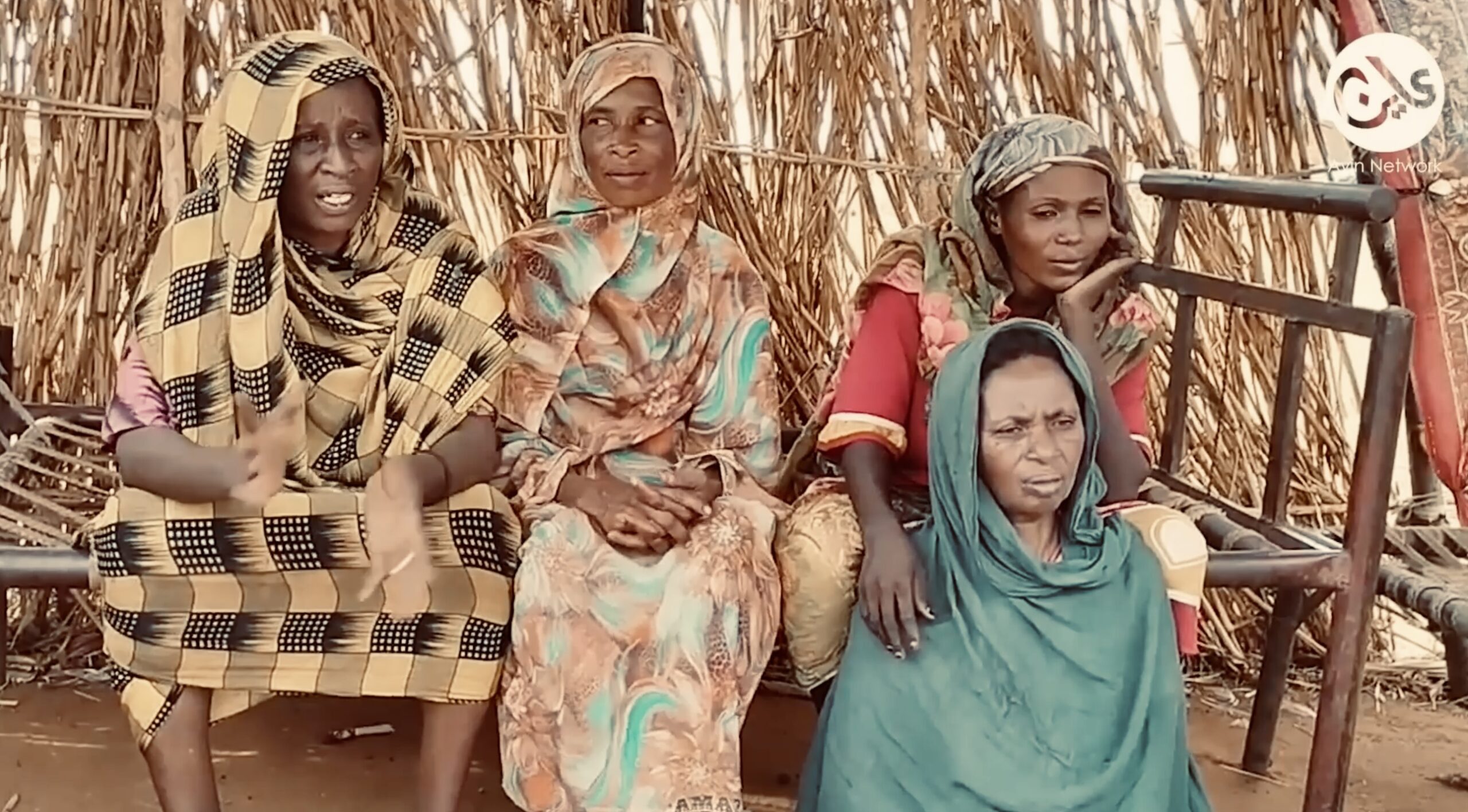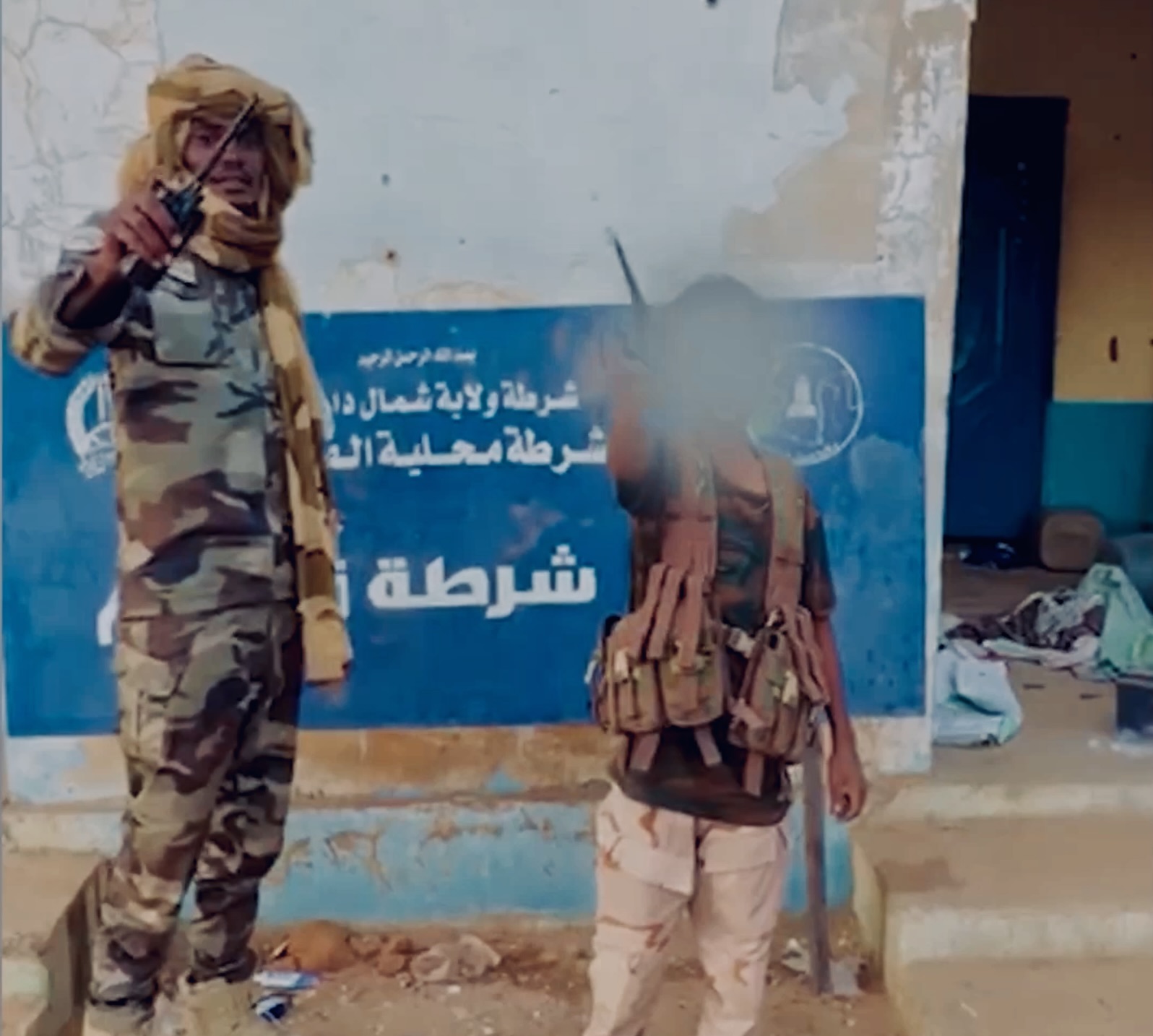Indiscriminate attacks on civilians—an ongoing violation by Sudan’s warring parties
15 November 2024
“His name is Hassan Ahmed Mohammed. His brothers are also here. Three of them died,” says a shaken father, hardly audible, in a video clip taken on 2 November in Gandahar Market, Omdurman—Sudan’s sister capital city. The father carries his youngest child in his arms, his burnt remains wrapped in a white sheet.
In a renewed offensive against the paramilitary Rapid Support Forces (RSF), Sudan’s national army launched a series of indiscriminate airstrikes on areas of Omdurman under RSF control. In most of these attacks, local witnesses told Ayin, the bombs only hit civilian targets. Local volunteer groups claim at least 60 civilians were killed in the attack.
According to one volunteer with the Emergency Response Rooms, a local youth-driven initiative to support the war-affected, all of the victims from the plane bombing were civilians as the bombs dropped at the Shwayat intersection, one of the few areas heavily populated by regular residents.
“Of course, you’ll find the RSF members at Shwayat because they are fans of grilled meat,” said the volunteer. “But there are also citizens there, and right across the street, there are fuel and gasoline traders.” The war planes hit these gasoline supplies, burning women and children in their path. “I saw people completely engulfed in flames, screaming and crawling. And, amazingly, there were RSF members in their vehicles without even a speck of dust on them.”
For nearly 19 months, Sudan’s national army, the Sudan Armed Forces [SAF] and RSF, have fought a war of political and economic dominance, displacing over 10 million people in the process. The humanitarian cost of the war is disastrous, with over half of the country’s population—nearly 26 million people—facing high levels of acute hunger.
Cases such as the SAF bombing of Omdurman are, unfortunately, a common occurrence instigated by both warring parties.
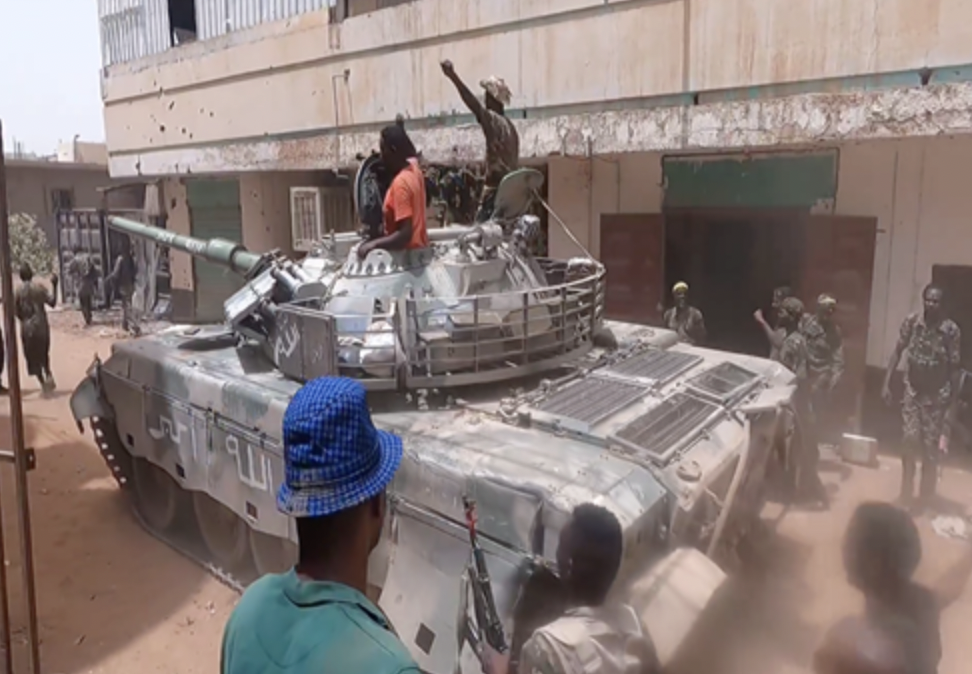
A pattern of indiscriminate attacks
Throughout the past 16 months, using open-source data to monitor attacks by both sides of the conflict, the Sudan Human Rights Hub has been able to identify at least two cases per month of the warring parties using heavy weapons, indiscriminately targeting civilian areas where no clearly discernible military target is identified. These are recorded and verified incidents; the total number of indiscriminate attacks against non-military targets is likely much higher.
One military source that spoke to Ayin indicated that, based on his intelligence, the warring parties are conducting indiscriminate attacks on a weekly basis with little consideration for the citizenry caught up in these attacks.
According to military expert and retired army officer Lt.-Col. Omar Arbab, the use of indiscriminate attacks by both warring parties is not always intentional but belies the poor training and military equipment used in the conflict. “This is reflected in the weak military capabilities and the inability to accurately strike targets, resulting in many casualties due to the inability to hit intended targets precisely. This is one of the problems in military operations.”
At other times, however, the targeting is intentional. According to Arbab, both the army and the RSF view civilians in areas under each other’s control as loyal to the opposing party and potential enemies. “Much of the artillery and indiscriminate shelling, as well as airstrikes, predominantly carried out by the RSF, aim to send a message that being in army-controlled areas does not guarantee security,” Arbab told Ayin. The retired military officer also acknowledges the fact that the army also targets civilian areas, especially through indiscriminate aircraft bombing campaigns. In addition, as both sides rely more on civilian recruits to join their respective war efforts, the more both sides identify all civilians, whether innocent or enlisted, as legitimate military targets.
According to the human rights data monitoring organisation, Artrika, there have been at least 131 airstrikes from September 2023 to October 2024 in the western Darfur region alone. These airstrikes have killed 513 people, a figure Artrika has been able to verify, stating that the actual number could be much higher.
But SAF are not the only ones.
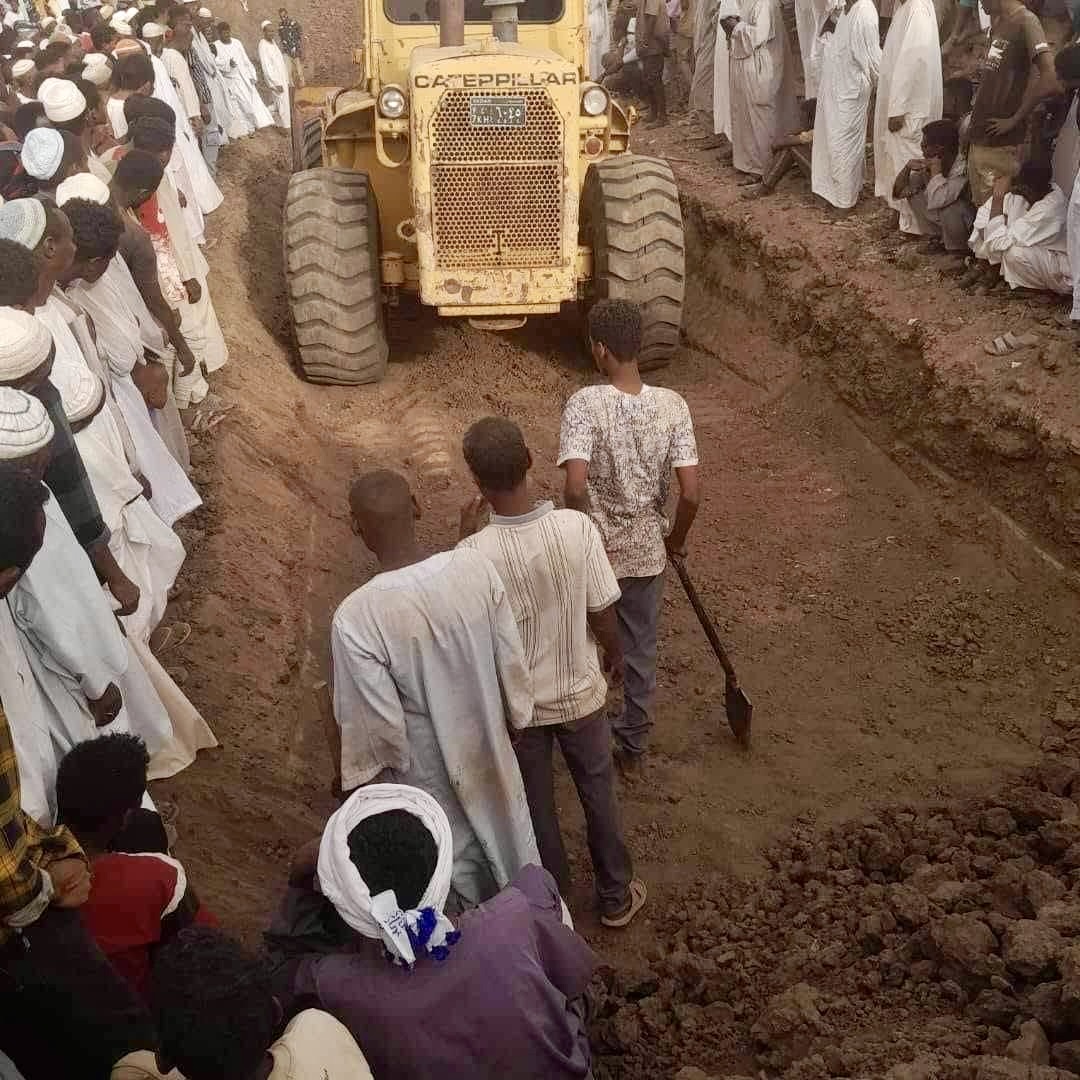
Wad al-Noura Village
Early in the morning on 5 June 2024, villagers in the Wad al-Noura area woke up to the sounds of heavy artillery shelling their village. According to several eyewitnesses, the RSF began shelling what appears to be non-military targets using rocket launchers, all positioned on the western side of Wad al-Nura village. Local residents say the heavy weapons were used to terrorise them. According to eyewitnesses, the main purpose for attacking the village with such force, the same sources said, was to loot all of Wad al-Nura’s inhabitants.
Soon after bombarding the village with heavy weaponry, the RSF then stormed the village around 8:30 in the morning with a large number of combat vehicles and dozens of soldiers. “The Rapid Support Forces soldiers stormed the village and entered the houses, then they classified the citizens according to gender and age group, as they put the women inside the rooms and locked them, and the children and elderly people aside by themselves, while the young men were put alone,” one eyewitness who managed to escape told Ayin. “These were terrifying moments, as the young men were lined up against the walls of the buildings, then the rifle was put to their heads and chests, and they were shot directly from zero distance.” Within an hour, eyewitnesses said that at least 50 people were killed.
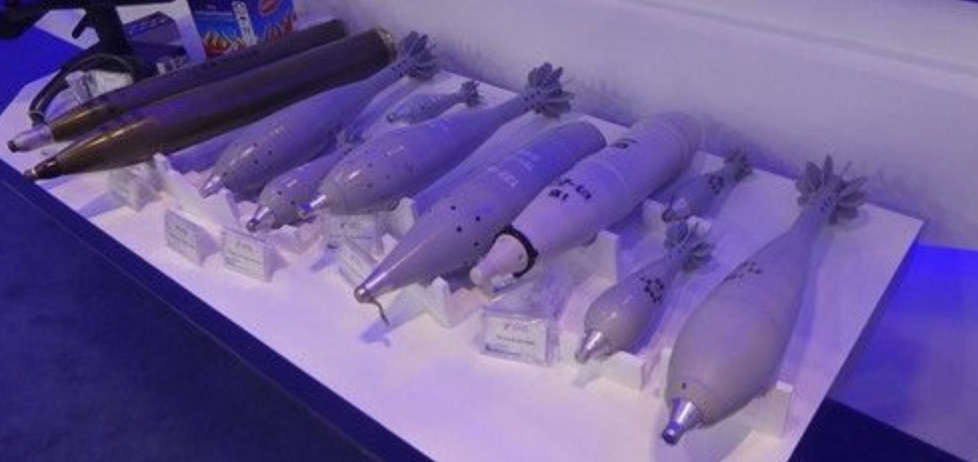
The arms
The warring parties’ vast array of heavy weaponry, whether procured domestically or abroad, and their propensity to use these weapons in civilian areas have contributed to the ongoing, high level of indiscriminate attacks and casualties. Using open source data and interviews with experts, the SHRH has been able to identify heavy weaponry being used by the arring parties since the beginning of the conflict.
Heavy machine guns, often mounted on the back of pickup trucks, are ubiquitous in Sudan, and most systems in use are domestic licenced copies of the Chinese W85 heavy machine gun, locally known as Khawad. The term “Dushka,” which referred to the Russian DShK, still in use in Sudan, is still widely heard in Sudan to talk about heavy machine guns in general.
For long-range engagement, including sniper attacks, the most commonly available system in Sudan are SVDs, either in their original Russian versions or the civilian version of these rifles (called Tigr), exported in large quantities by Kalashnikov Concern over the last 10 years. Warring parties are also equipped with anti-material rifles, most commonly using the Chinese Zijiang M99.
Sudan’s use of artillery and mortars, particularly 82mm and 120mm mortars, is also prevalent, with evidence of Chinese-manufactured weapons being deployed in various regions. Both parties rely heavily on multiple launch rocket systems, including the BM-21 Grad MLRS and Chinese Type 63 systems, which are used for wide-range bombardment despite the high risk of collateral damage to civilian infrastructure.
The SAF’s arsenal includes an array of tanks and armoured vehicles, primarily adaptations of Soviet or Chinese designs, while the RSF uses armoured personnel carriers, mainly sourced from the United Arab Emirates. Notably, the RSF has been observed using anti-aircraft systems and occasionally MANPADS, often mounted on pickup trucks for mobility, which reflects the adaptation of weaponry for unconventional, mobile warfare. Additionally, unconventional uses of weaponry have surfaced, such as rocket pods mounted on vehicles instead of aircraft, posing severe risks of indiscriminate attacks.
On July 2, 2023, one social media account managed to film a B-20M1 rocket pod precariously mounted on a pickup truck in Omdurman, the capital’s sister city in Khartoum State. “Today’s clashes in Omdurman are the strongest of their kind, with aviation, artillery, and heavy weapons,” said Yasir Mostafa via X. According to a weapons’ expert interviewed by the Sudan Human Rights Hub, these rockets are designed to be mounted on planes and used with a specific firing and targeting system. Instead, these B-8M1 rocket pods mounted on a vehicle fire S-8 rockets with little accuracy and constitute an immense risk for indiscriminate attacks.
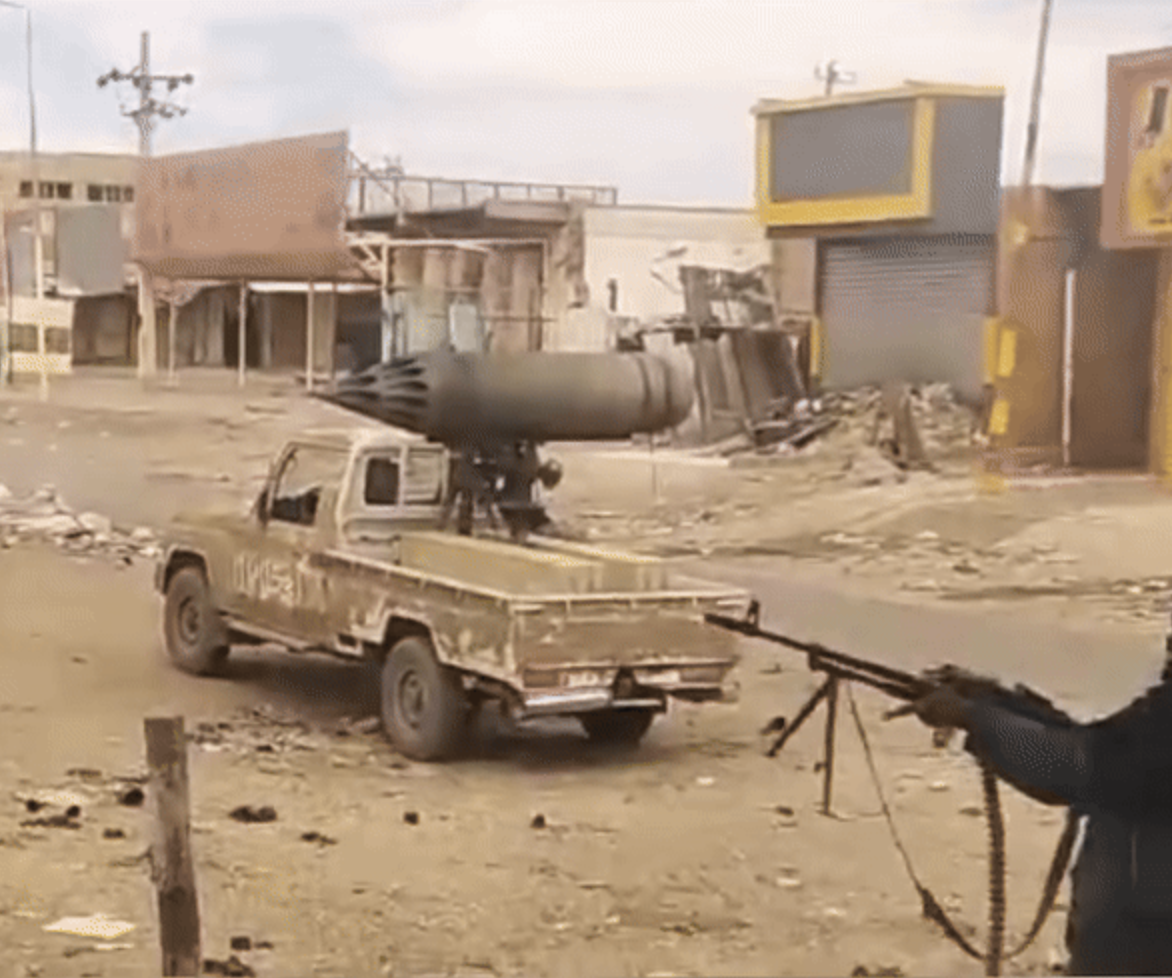
A potential war crime
Under international humanitarian law, attacks should not only be directed against military objectives but also follow the duty of precaution and the duty of proportionality in attacks, the SHRH reported. Even when directed against military objectives, an attack may be unlawful if it has an indiscriminate or disproportionate effect on civilians and civilian objects. These attacks, SHRH says, may constitute war crimes provided that the attacker knew or should have known that the attack would cause excessive civilian harm.
But there are few signs either warring party will curb these indiscriminate attacks given a diluted reaction by international actors, says political analyst Mohamed Ibrahim. “With the exception of selected sanctions against individuals from the army and RSF, there is little outside pressure for either side to stop shooting,” Ibrahim told Ayin. “Both the army and RSF know that the international community’s attention is elsewhere and there are few repercussions to their actions.” The UN Secretary-General António Guterres spoke to the UN Security Council in late October, calling for “decisive action” in Sudan but falling short of recommending a civil peace force being deployed on the ground.
The army refused to attend peace talks in Geneva last August, anticipating a military advantage after the arrival of weapons from foreign backers. RSF leader Lt.-Gen. Mohamed Hamdan Dagalo (known as “Hemedti”) veered away from his once diplomatic public script in early October, making an incendiary speech last month, suggesting only the RSF will pursue a military solution.
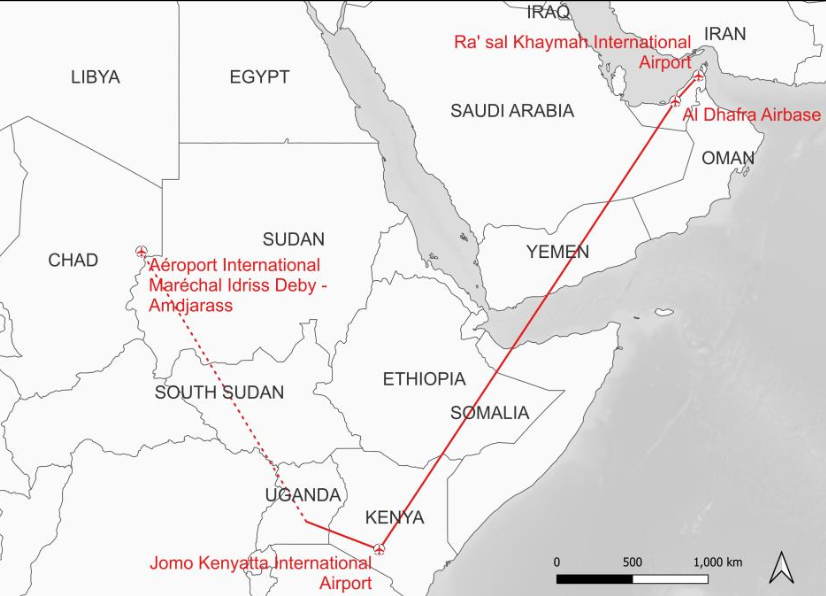
A report released by the US State Department-led Sudan Conflict Observatory documents with near certainty multiple cargo flights by the UAE and Iran in likely arms shipments to the RSF and national army, respectfully. Both countries used cargo planes that have a history of weapons shipments, the Observatory added. “This flow of foreign arms entering the country make prospects for peace negligible,” Ibrahim added, “there are no real incentives for them to follow a different path.”
In their recommendations, SHRH call on the United Nations Security Council to renew, enforce, and expand the mandate of the Sudan 1591 sanctions regime, which currently only includes the arms embargo in relation to Darfur and mechanisms for travel bans and asset freezes. The arms embargo should be expanded, the SHRH writes, to cover the entire country and supported with an effective mechanism to prevent international sales and illicit transfers of arms to Sudan.




